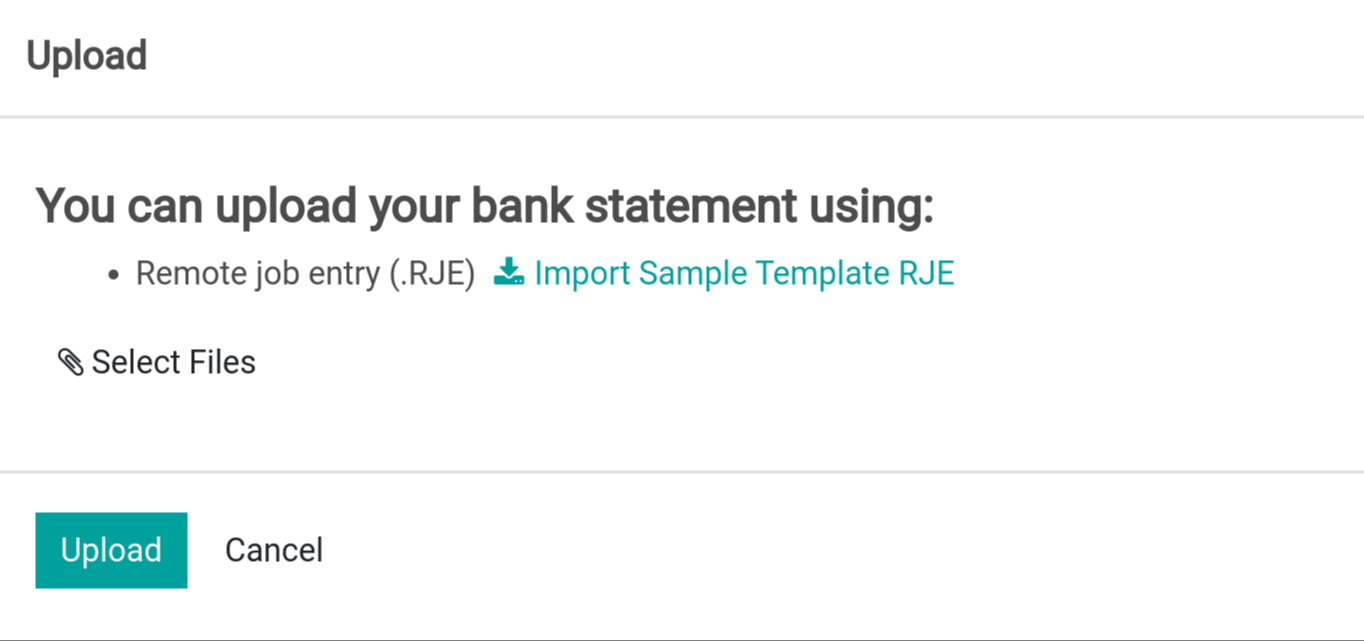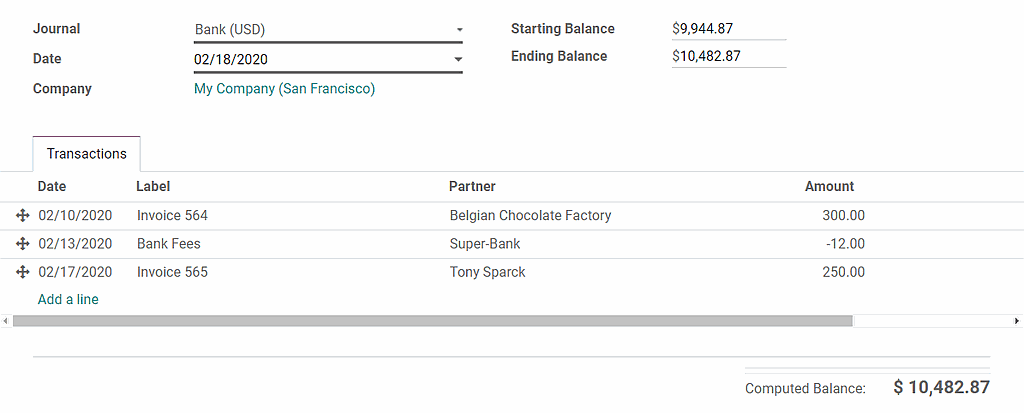Bank Statements
Importing your bank statements in Odoo/ERPOnline Accounting allows you to keep track of the financial movements that occur on your bank accounts and reconcile them with the transactions recorded in your accounting.
The easiest way to do so is by synchronizing. However, if your bank account is not synchronized with Odoo/ERPOnline, you still have two options:
- Import the bank statement files delivered by your bank
- Register the bank statements manually
Import bank statements files
Odoo/ERPOnline now supports RJE (SWIFT MT940 formats) to import bank statements. If you have demand for the following formats, we can customize to feed your need:
- SEPA recommended Cash Management format (CAMT.053)
- Comma-separated values (.CSV)
- Open Financial Exchange (.OFX)
- Belgium Coded Statement of Account (.CODA)
To import them, go to :menuselection:`Accounting --> Overview --> Bank`, click on Import Statements, or on the three dots, and then on Import Statement.
Next, select the file you want to import and click on Upload.

Register bank statements manually
If needed, you can also record your bank statements manually.
To do so, go to :menuselection:`Accounting --> Overview --> Bank`, click on Create Statements, or on the three dots, and then on New Statement.
Add a new line for each transaction written on the original bank statement.
To ease the reconciliation process, make sure to fill out the Partner field. You can also write the payments’ references in the Label field.

Note
The Ending Balance and the Computed Balance should have the same amount. If it is not the case, make sure that there is no mistake in the transactions’ amounts.
